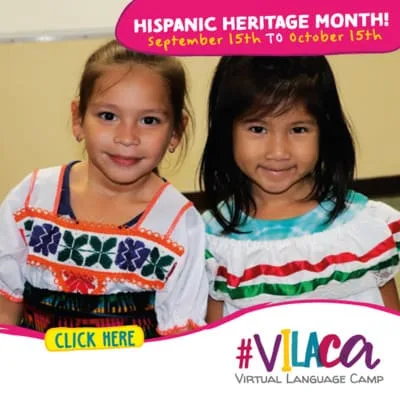In living rooms across America, a quiet loss is taking place.
Parents and grandparents speak to their children in their heritage language—Spanish, Korean, Armenian, Tagalog, Mandarin—only to be answered in English. Over time, that treasured tongue, once vibrant at family gatherings and bedtime stories, begins to fade.
This is not uncommon. In fact, it’s the norm.
A Pew Research Center study found that by the third generation, only 17% of immigrant families retain fluency in their heritage language.
📉 Heritage Language Retention by Generation
| Generation | % Fluent in Heritage Language |
| 1st | 100% |
| 2nd | 61% |
| 3rd | 17% |
(Source: Pew Research Center, 2019)
For many parents, especially those navigating the U.S. school system, the erosion of their children’s linguistic heritage feels both heartbreaking and inevitable.
But here’s the truth: It doesn’t have to be.
What’s Really at Stake?
It’s not “just language.” Its identity, connection, and cultural belonging.
When a child loses their heritage language, they often lose access to:
– Grandparents’ stories and traditions
– Deep cultural references that don’t translate
– A sense of pride in where they come from
That loss impacts more than family dynamics—it affects self-esteem, academic performance, and intergenerational understanding.
The U.S. Education System and the Language Gap
Despite America being one of the most linguistically diverse countries in the world, public schools often fail to support heritage language retention. Many programs focus solely on English acquisition, unintentionally sidelining the languages spoken at home.
This leaves many families—especially Latinx, Asian-American, and immigrant communities—without structured support for preserving their languages.
Enter: Cultural Bytes, the trusted bridge between home and heritage.
A Proven Path to Language Preservation
At Cultural Bytes, we specialize in heritage language retention through culturally rich, emotionally connected programs that go far beyond textbooks and vocabulary lists.
We help families:
– Reconnect with their native tongues
– Celebrate cultural identity
– Build fluency through music, storytelling, games, and family-centered experiences
Our classes don’t just teach a language—they reignite pride in ancestry, confidence in communication, and joy in tradition.
From Heritage Speaker to Heritage Keeper
Even if you aren’t fluent, you can still be the ancestral link that keeps your family’s language alive.
Here’s how:
– 📚 Read bilingual books with your child
– 🎶 Sing heritage songs during daily routines
– 📱 Use language-learning apps together
– 🗣️ Enroll in family language classes where everyone learns and grows
Your children don’t need you to be perfect—they need you to be present, proud, and proactive.
Real Voices, Real Impact
> “My abuela cried when my daughter said a full sentence in Spanish. We owe it to Cultural Bytes for making that moment possible.”
– Marta S., Heritage Spanish Speaker, Glendale
> “I always thought my Korean wasn’t strong enough to pass on—but now we’re learning as a family. My son asks for ‘eomma’ instead of ‘mom’ now.”
– David K., 2nd Gen Korean-American Parent
The Legacy Starts With You
You can be the one to turn the tide in your family’s language story.
Be the reason your children feel rooted—not just in their future, but in their past.
Join our growing community of parents and heritage learners at Cultural Bytes. Let’s keep your family’s voice alive—for generations to come.
—
#Tags:
#HeritageLanguageRetention #LanguageLegacy #CulturalBytes #BilingualKids #ImmigrantFamilies #ParentingWithPurpose #LatinxFamilies #AsianAmericanIdentity #PreserveYourCulture #MultilingualParenting #SpanishForHeritageSpeakers #KoreanLanguage #FamilyFluency #CulturalPride #GenerationalLanguage #AfterSchoolEnrichment #LanguageIsIdentity








